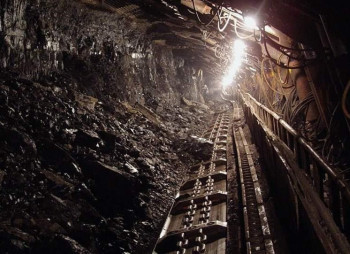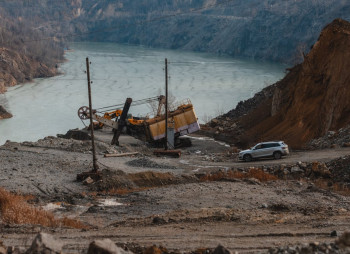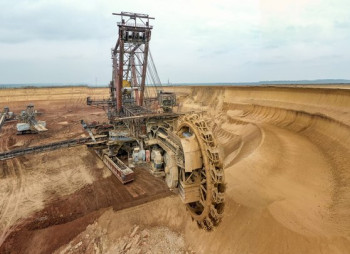The annual revenue generated by the Ukrainian crypto mining industry amounts to over $100 million, according to recently published data. The country remains attractive to miners while mining costs in many other corners of Europe are simply prohibitive, at the current price of bitcoin.
No License Needed to Mine Cryptocurrencies
Cryptocurrencies can be mined in Ukraine without a license, according to the State Service of Special Communication and Information Protection, the regulator that oversees activities requiring licensing. The agency is not planning to introduce such an obligation in the sector in the near future, it said in a response to an enquiry filed by the Better Regulation Delivery Office organization (BRDO).
According to BRDO, however, not recognizing mining as an economic activity that needs licensing and as a service providing “cryptographic protection of information” is one of the main issues in the local crypto industry. “Market participants have been threatened with a tangible sanctions – fines and confiscation of equipment and cryptocurrency,” said Igor Samodhodsky, an expert at BRDO, quoted by Forklog.
Samodhodsky also noted that entrepreneurs and companies operating in the sector usually try to avoid official registration because of the uncertain legal status of cryptocurrencies and crypto transactions. “The unpredictability of the actions of their counterparties and authorities creates a number of obstacles to their activities,” the BRDO representative emphasized.
Ukrainian Miners Make $100 Million Annually
Crypto mining is just one of the segments of the country’s crypto industry awaiting comprehensive regulation. Ukrainian authorities have so far failed to meet these expectations. Three draft laws have been filed in the Rada since October but deputies have not made any significant progress towards their adoption. These are the bill “On the Circulation of Cryptocurrency in Ukraine”, the law “On Stimulating the Market of Cryptocurrencies and Their Derivatives”, and a supplementary draft covering taxation of crypto incomes and profits. Moreover, the recently adopted Currency Law did not even mention cryptocurrencies.
In March, the Ukrainian government supported an initiative by the Economy Ministry to add mining to the national register of economic activities. Several ministries, agencies and the National Bank are engaged in the preparation of the necessary documents. No time frame was given for the completion of the procedure, which amounts to legalization. Last month, BRDO announced that Ukrainian crypto mining companies generate more than $100 million of revenue annually.
And while Ukraine is offering miners decent conditions, including low electricity rates going down to ~$0.04 per kWh depending on the category of users and no restrictive regulations, in some other European countries mining bitcoin is far from profitable. The situation for miners on the continent is further aggravated by the persistent bearish trend on crypto markets that brought the price of BTC below the psychological threshold of $6,000 per coin.
Prohibitive Expenses, Low Bitcoin Prices
Payment provider and crypto exchange Wordcore has recently conducted a study to determine the profitability of mining in different countries. According to their calculations, quoted by Forbes Kazakhstan, using Bitmain’s Antminer S9 at an energy consumption of 1.5 kWh earns about 0.0008 BTC in 24 hours. This means mining a single bitcoin requires approximately 45 MW of electricity. For example, mining 1 BTC in the Czech Republic, where electricity for industrial usage is priced at €0.06 per kWh (~$0.07), costs around €3,000 (~$3,500)
Germany and Italy are among the European nations maintaining some of the highest electricity rates for businesses on the continent – around €0.15 (~$0.17) per kWh. According to the report, mining one bitcoin there costs between €6,835 and €6,646 respectively (~$7,964 and $7,746), which is much more than what the cryptocurrency currently costs. Besides, these are only production costs, not including investments in equipment, its delivery and installation, the maintenance costs and other expenses like rent and so on.
Mining in some countries becomes prohibitively expensive and experts advise investors to start with searching for a destination which offers competitive electricity rates, in the first place. Among these regions are the Russian oblasts of Tyumen and Murmansk, the states of Washington and Louisiana in the US, and the Canadian province of Quebec.






